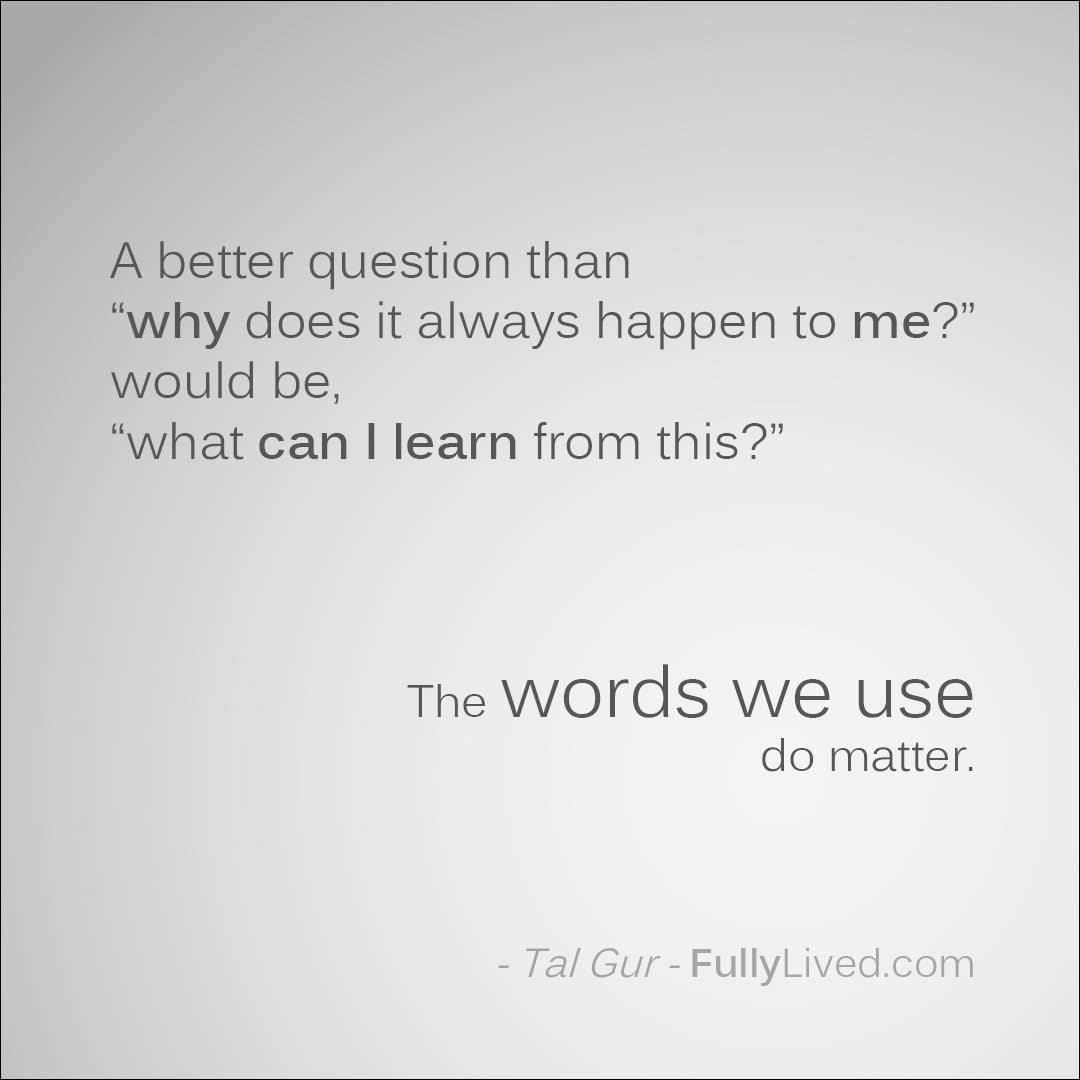A better question than “why does it always happen to me?” would be, “what can I learn from this?”. The words we use do matter.
Ever found yourself trapped in the labyrinth of life's troubles, wondering why you seem to be the perpetual target of misfortune? It's a familiar echo in the chambers of our minds, a lamentation that often spills from our lips: "Why does it always happen to me?" Yet, amidst the shadows of despair, there lies a beacon of wisdom, a subtle shift in perspective that could illuminate the darkest of paths. Instead of dwelling on the ceaseless cycle of woes, what if we dared to ask a different question? What if, instead of sinking deeper into the quicksand of self-pity, we raised our gaze to ponder, "What can I learn from this?"
Words hold a remarkable power, not just to express our emotions but to shape our reality. Like artisans molding clay, we sculpt our experiences through the language we choose. "Why does it always happen to me?" carries with it the weight of victimhood, a heavy shroud that obscures the light of understanding. It's a question that locks us in a cage of helplessness, a narrative where we are mere puppets at the mercy of fate's cruel whims. But "What can I learn from this?" Ah, there lies the key to liberation. It's a question that opens doorways to insight, inviting us to step beyond the confines of our circumstances and into the realm of possibility.
Consider for a moment the analogy of a gardener tending to his patch of earth. In his hands, he holds not just seeds but the power to nurture life itself. When faced with a withered plant, does he curse the soil for its barrenness, or does he seek to understand the needs of the plant? Does he lament his fate as a hapless victim of nature's cruelty, or does he adapt, learning from each wilted leaf and each parched stem? Like the gardener, we too have the choice to be stewards of our own growth. We can choose to see setbacks not as stumbling blocks but as stepping stones, each one offering valuable lessons waiting to be unearthed.
The shift from "why" to "what" is more than just a change in semantics; it's a revolution of the soul. It's a declaration of resilience, a testament to the indomitable spirit that resides within each of us. It's the difference between being swept away by the currents of adversity and learning to navigate the rough waters with grace and determination. So, the next time life throws you a curveball, pause for a moment. Take a breath. And ask yourself, "What can I learn from this?"
What steps can you take today to incorporate the power of "What can I learn from this?" into your daily life?
* To gain more inspiration and motivation for your personal growth journey, I recommend visiting my SMART goals page, which offers a wide range of goal ideas to help you establish new aspirations and achieve greater success in life. This list was crucial in the development of my own life goals list, consisting of 100 goals that I pursued for ten years.
Chief Editor
 Tal Gur is an author, founder, and impact-driven entrepreneur at heart. After trading his daily grind for a life of his own daring design, he spent a decade pursuing 100 major life goals around the globe. His journey and most recent book, The Art of Fully Living, has led him to found Elevate Society.
Tal Gur is an author, founder, and impact-driven entrepreneur at heart. After trading his daily grind for a life of his own daring design, he spent a decade pursuing 100 major life goals around the globe. His journey and most recent book, The Art of Fully Living, has led him to found Elevate Society.






















